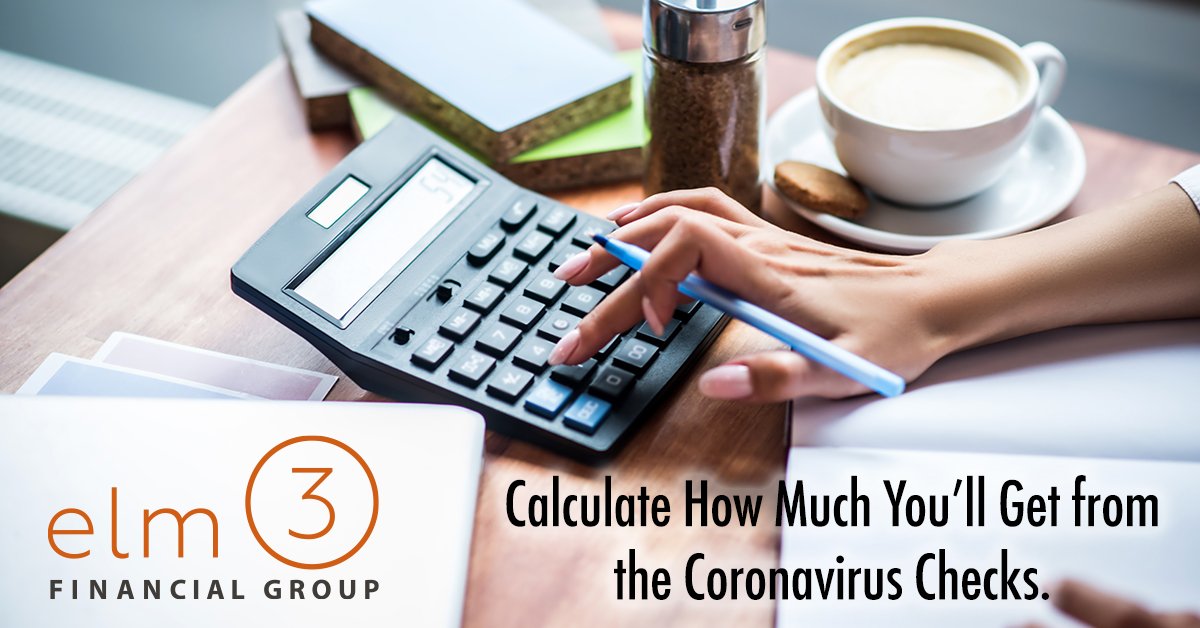Calculate how much you’ll get from the $1,200 (or more) Coronavirus Checks
April 3, 2020 4:00 pm ET
By: Stacey Nickens
Over 80 percent of American adults will receive a payment
The U.S. government is about to send checks — or direct deposits — to most Americans to help people survive financially as much of the economy shuts down in an effort to slow the spread of the novel coronavirus.
Bipartisan legislation signed into law by President Trump would provide $1,200 payments to adults with annual incomes up to $75,000, plus another $500 per child. Some Americans earning more than $75,000 would also receive money if they meet certain qualifications outlined below. For most Americans, the money is likely to arrive in April via direct deposit. Mailed checks may take longer.
Use this calculator to see how much you would receive.
Who exactly qualifies for a payment? Individuals with adjusted gross incomes up to $75,000 a year will be eligible for the full $1,200 check. Reduced checks will go out to individuals making up to $99,000 a year (the payment amount falls by $5 for every $100 in income above $75,000).
Married couples are eligible for a $2,400 check as long as their adjusted gross income is under $150,000 a year. Reduced checks, on a sliding scale, will go out to married couples who earn up to $198,000. Married couples also will receive an additional $500 for every child under 17.
People who file as a “head of household” (typically single parents with children) are eligible for a $1,200 check if they have an adjusted gross income up to $112,500 a year. Reduced checks on a sliding scale are available for heads of household earning up to $136,500 annually. Heads of household will also receive an additional $500 per child under 17.
How does the U.S. government know where to send the money? If you have already filed a 2019 tax return (that’s the one most people are working on now), the Internal Revenue Service will use the direct deposit information on your 2019 return to send your payment to your bank account. If you don’t provide the IRS with your direct deposit details or you closed that account, then the IRS will mail you a check.
If you have yet to file a 2019 tax return, the IRS will see if you have filed a 2018 tax return and use that information to determine whether you meet the qualifications for a check and to find your bank details or mailing address.
When will the payments arrive? Treasury Secretary Steven Mnuchin has set a goal of getting the first payments out the door by Friday, April 17. Direct deposits will go first. The last time the U.S. government did anything like this, in 2008, the payments went out in batches and it took about eight weeks for the final people to receive their checks.
What about people on Social Security? People on Social Security — both retirees and those on disability — are eligible to receive the coronavirus relief payment as long as their total income does not exceed the limit. Treasury has clarified that people on Social Security who do not normally file a tax return will automatically receive the payment. They do not need to file anything else.
How many Americans will get these payments? Roughly 125 million people will receive a check, or about 83 percent of tax filers, according to Kyle Pomerleau, a tax expert at the American Enterprise Institute.
Who won’t get a check? The main people excluded from receiving a payment are the wealthy, “nonresident aliens” and “dependents” who can be claimed on someone else’s tax return.
Will there be another payment in the summer? Maybe. President Trump has said he is open to another round of the checks, but only if the economy remains anemic through the spring and an additional boost is warranted.
Are the checks taxable? No, they are not taxable.
What’s the cutoff date to file my 2019 tax return and get a check? You should file ASAP if you can. Filing a 2019 return is especially important for people who need to update their direct deposit information or for people who would not qualify for a check based on their 2018 tax return but would qualify based on their 2019 information.
What happens to people who earned too much in 2018 and 2019 but now lost their job? This is a really tough situation. Unfortunately, these workers are not eligible for $1,200 checks right away. They would get the rebate when they file their 2020 taxes next year. Treasury may create a program to get these people money sooner, but nothing has been announced yet.
If I owe past taxes, will my check be reduced? No. The only reason a check would be reduced is if past child support payments are due and the amount has been reported to the federal government.
What if my income is higher in 2020? You do not have to pay the government back. Technically a person’s 2020 income is what qualifies them for the payment. Since no one knows their total 2020 income yet, the government is using tax returns from 2019 and 2018 to figure out who qualifies for a check. If you get a payment and then your 2020 income is higher and thus merits a reduced payment or no payment, the money does not have to be paid back.
I have a lot more questions. What should I do? The IRS created a website with the latest information. Check: https://www.irs.gov/coronavirus.
Source : The Washington Post







